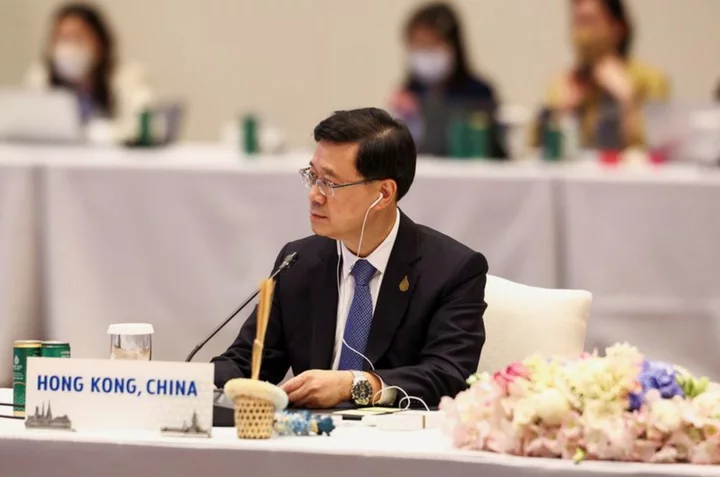By Jessie Pang and James Pomfret
HONG KONG Hong Kong's leader said on Tuesday public libraries needed to ensure books don't violate local laws, amid criticism that many books and videos related to China's Tiananmen Square crackdown have now been removed from library shelves.
"These books are accessible by people in private book shops. If they want to buy, they can buy," Hong Kong's chief executive John Lee told reporters when asked about the removal of June 4 literature and documentaries from public libraries.
"What libraries need to do is to ensure that there's no breach of any laws in Hong Kong, including of course, copyrights etc, and also if they spread any kind of messages that are not in the interests of Hong Kong," Lee added, without elaborating.
Hong Kong, which returned from British to Chinese rule in 1997 with the promise of wide-ranging freedoms, has in recent years curbed individual liberties under a sweeping China-imposed national security law.
Chinese authorities, however, say the security law has brought stability after mass pro-democracy protests in 2019.
Public memorials and commemorations of China's bloody Tiananmen Square crackdown in 1989 were once allowed in Hong Kong, unlike mainland China where it is a taboo and censored topic.
In the past three years, however, Hong Kong authorities have barred an annual June 4 candlelight vigil from taking place on COVID social distancing grounds, and public monuments including a "goddess of democracy" statue have been dismantled from 3 universities.
With the scrapping of COVID restrictions this year, some activists have called for the June 4 vigil to resume.
Hong Kong's Ming Pao newspaper reported that more than 40 percent of video materials and books involving "political themes" had been removed from public libraries since 2020.
A government backed Audit Commission said in an April report that a two year government review of library materials had almost been completed of "library books which are manifestly contrary to the interests of national security and removed them from the library collections".
The national security law, which punishes acts including subversion and collusion with foreign forces with possible life imprisonment, has been criticised as a tool of repression by some countries including the United States.
(Editing by Raju Gopalakrishnan)

